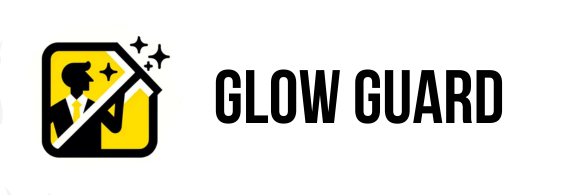In the UK, homeowners often face the challenge of bees and wasps nesting in their gutters and roofs, which can lead to both safety concerns and damage to property. Here are effective strategies to discourage these unwelcome guests, keeping your drainage systems unobstructed and your residence secure.
Routine Surveillance
It's crucial to conduct periodic inspections of your gutters and roof. Keep an eye out for any signs of bees and wasps attempting to build nests, especially during the warmer months. Catching these signs early can help prevent the establishment of nests and minimize the presence of these insects near your living spaces.
Block Entry Points
Wasps are known for their ability to enter through tiny openings. Examine your home's exterior for any small cracks or openings. Seal these areas with materials such as silicone sealant or wood filler to ensure these insects cannot gain entry. This is a preventative measure against wasp nests forming in your roof spaces.
Manage Water Properly
Bees and wasps are attracted to stagnant water. Make sure your gutters are sloped properly to prevent water from pooling. Address any leaks promptly and ensure your gutter system is free of obstructions to discourage these pests from congregating around water sources. A clean and well-maintained gutter is less inviting to wasps and bees, as it does not provide a habitat for their prey.
Natural Deterrents
Utilize natural repellents near your gutters and roof to keep wasps and bees at bay without harming them. Essential oils such as peppermint, eucalyptus, and citronella are effective in repelling these insects. Create a mixture of these oils with water and spray it around your gutters for a natural deterrent.
Install Barriers
Consider installing gutter guards or covers to block wasps from entering and nesting in your gutters. These devices also help in keeping the gutters clear of debris that might attract insects. Make sure these protective barriers are securely in place and inspect them regularly for any signs of wear or damage to maintain their effectiveness.
Garden and Landscape Upkeep
Prune any trees and bushes that are near your house, as overhanging limbs can provide easy access for pests to your roof and gutters. A well-kept garden reduces the likelihood of wasps and bees migrating onto your property.
Enhance Drainage
Optimize the drainage surrounding your property to eliminate any standing water, which is a potential attractant for these insects. Ensure that your downspouts are effectively diverting water away from your home and that there's no stagnant water in your yard.
Maintain Cleanliness
Keep the vicinity of your home tidy, avoiding the accumulation of food waste or sugary substances that could attract wasps. Regularly check outdoor garbage bins to ensure they are clean and securely closed.
Seek Expert Advice
If you encounter a significant nest or are hesitant about addressing the issue on your own, it's wise to contact a professional pest control service. They are equipped with the necessary skills and tools to safely eliminate wasp and bee nests.
DIY Precautions
For those tackling smaller nests independently, choose to do so in the early morning or late evening when wasps are less active. Wear protective clothing and use insecticides designed for wasps, adhering strictly to the usage instructions. Repeated treatments may be required for complete eradication.
Professional Gutter Maintenance
While individual efforts can be beneficial, professional gutter cleaning services offer thorough cleaning and inspection for pest activity, providing tailored solutions to prevent future infestations.
For expert gutter maintenance and a complimentary estimate, contact us today.
In the UK, homeowners often face the challenge of bees and wasps nesting in their gutters and roofs, which can lead to both safety concerns and damage to property. Here are effective strategies to discourage these unwelcome guests, keeping your drainage systems unobstructed and your residence secure.

Routine Surveillance
It's crucial to conduct periodic inspections of your gutters and roof. Keep an eye out for any signs of bees and wasps attempting to build nests, especially during the warmer months. Catching these signs early can help prevent the establishment of nests and minimize the presence of these insects near your living spaces.
Block Entry Points
Wasps are known for their ability to enter through tiny openings. Examine your home's exterior for any small cracks or openings. Seal these areas with materials such as silicone sealant or wood filler to ensure these insects cannot gain entry. This is a preventative measure against wasp nests forming in your roof spaces.

Manage Water Properly
Bees and wasps are attracted to stagnant water. Make sure your gutters are sloped properly to prevent water from pooling. Address any leaks promptly and ensure your gutter system is free of obstructions to discourage these pests from congregating around water sources. A clean and well-maintained gutter is less inviting to wasps and bees, as it does not provide a habitat for their prey.
Natural Deterrents
Utilize natural repellents near your gutters and roof to keep wasps and bees at bay without harming them. Essential oils such as peppermint, eucalyptus, and citronella are effective in repelling these insects. Create a mixture of these oils with water and spray it around your gutters for a natural deterrent.

Install Barriers
Consider installing gutter guards or covers to block wasps from entering and nesting in your gutters. These devices also help in keeping the gutters clear of debris that might attract insects. Make sure these protective barriers are securely in place and inspect them regularly for any signs of wear or damage to maintain their effectiveness.
Garden and Landscape Upkeep
Prune any trees and bushes that are near your house, as overhanging limbs can provide easy access for pests to your roof and gutters. A well-kept garden reduces the likelihood of wasps and bees migrating onto your property.

Enhance Drainage
Optimize the drainage surrounding your property to eliminate any standing water, which is a potential attractant for these insects. Ensure that your downspouts are effectively diverting water away from your home and that there's no stagnant water in your yard.
Maintain Cleanliness
Keep the vicinity of your home tidy, avoiding the accumulation of food waste or sugary substances that could attract wasps. Regularly check outdoor garbage bins to ensure they are clean and securely closed.
Seek Expert Advice
If you encounter a significant nest or are hesitant about addressing the issue on your own, it's wise to contact a professional pest control service. They are equipped with the necessary skills and tools to safely eliminate wasp and bee nests.
DIY Precautions
For those tackling smaller nests independently, choose to do so in the early morning or late evening when wasps are less active. Wear protective clothing and use insecticides designed for wasps, adhering strictly to the usage instructions. Repeated treatments may be required for complete eradication.
Professional Gutter Maintenance
While individual efforts can be beneficial, professional gutter cleaning services offer thorough cleaning and inspection for pest activity, providing tailored solutions to prevent future infestations.
For expert gutter maintenance and a complimentary estimate, contact us today.

